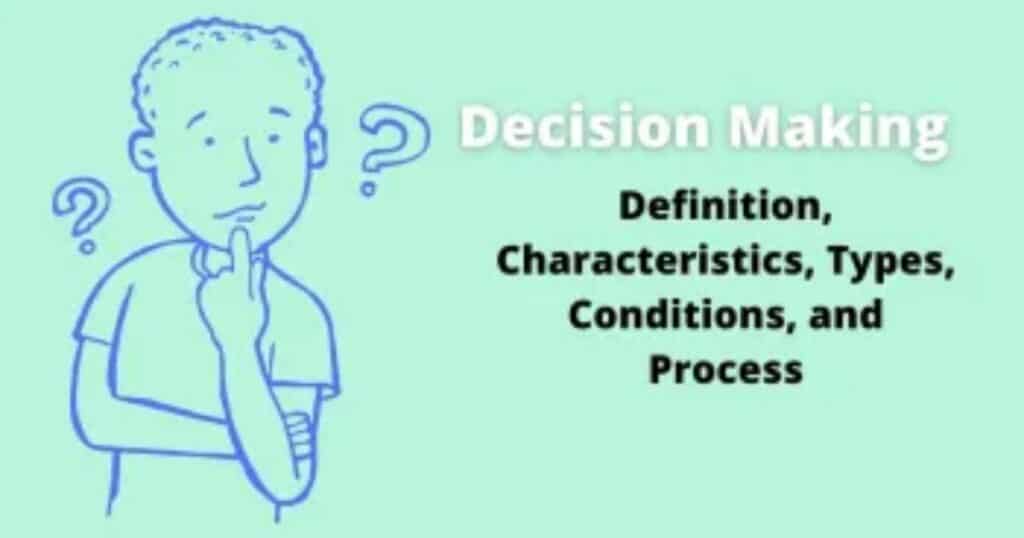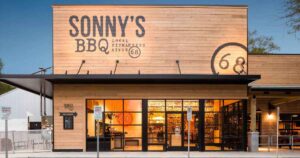Strategic decisions are decisions and plans related to the more detailed implementation of the directors’ general strategy, usually with medium-term effects on the company. Strategic points that require decisions.
Imagine you’re playing a game like chess. You must think ahead, plan your moves, and outsmart your opponent. When people in charge of a company make important decisions to achieve their goals, it’s called “business tactics. But What Is A Tactical Decision In Business” thing all about? Let’s dive in and uncover the secret strategies that help businesses win their big games.
A tactical decision in business is like a game plan. It’s when a company decides how to do things to reach its goals. Imagine a soccer team making a plan for the next game – that’s kind of like a tactical decision. It helps a company figure out what steps to take today to succeed tomorrow. So, it’s like a smart move in the big business game!
The Significance of Tactical Decisions

Tactical decisions are like the small, essential moves in a game of chess. They’re the choices we make right now that can help us win later. Imagine you’re playing soccer, and you decide to pass the ball to your teammate instead of trying to score on your own – that’s a tactical decision.
Getting you a goal might take some time, but it helps your team work together to win the game. Making good tactical decisions means thinking about what’s best for the situation, even if it doesn’t bring instant success. These decisions are like building blocks for a successful future.
Short-Term vs. Long-Term Focus
Short-term focus means looking at things that happen soon, like today or tomorrow. The long-term focus is on things that will happen soon, like next year or when you grow up. It’s essential to balance both short-term and long-term thinking to make good choices in life.
Operational Impact
Operational Impact means how something affects the way things work. Like when it rains a lot, it can flood streets, making it hard for cars to drive. That’s an operational impact – it messes up how things usually happen. So, it’s about how stuff changes or gets harder because of something that occurred.
Specificity and Detail
Specificity means giving exact details about something. Imagine describing your favorite toy car. Instead of saying, “I like cars,” you say, “I like my red toy car with shiny wheels.” Detail is like adding lots of colorful puzzle pieces to your story, making it exciting and easy to understand.
Tactical vs. Strategic Decisions
Tactical and strategic decisions are like two different plans in a big game. Tactical decisions are like the small steps you take in the game to win. It’s like deciding where to move your players on a chessboard. Tactical choices are short-term and help you win battles.
On the other hand, strategic decisions are like the big-picture plans. They are like deciding your game strategy, like which pieces to move and where to put your focus. Strategic decisions are long-term and help you win the whole game.
Defining Strategic Decisions
Strategic decisions are like big game plans. They help a group or a company figure out what they want to do in the long run. It’s like deciding the main path to follow. These decisions are super important because they can change everything and need lots of thinking.
Complementary Roles
Complementary roles mean two things or people that work together to make something better, like peanut butter and jelly in a sandwich. They’re different, but they make a delicious team when they come together! People and things often have complementary roles in life, helping each other achieve success.
Time Horizons
“Time horizons” mean how long we plan for things. A short one could be getting ready for school in the morning. A longer one might be saving money for a big toy. It’s about how far ahead and plan in our lives.
Critical Characteristics of Tactical Decisions

Tactical decisions are like small steps in a game. They help you win battles. Imagine playing chess. Moving your pieces one by one is tactical. It’s about what you do now. Strategic decisions are more significant.
They’re like making a plan for the whole game. In chess, it’s where you put your pieces for the long run. It’s about winning the whole game, not one move.
Short-Term Orientation
Short-term orientation means thinking about things that will happen soon, like in a few days or months. It’s like getting ready for a test at school. You plan and work hard for it, focusing on the near future rather than things far away. It’s all about being prepared for what’s coming soon.
Operational Integration
Operational Integration means making things work together smoothly. It’s like when all your toys fit in one big box, and you can find them. In a company, different parts, like people and machines, work well together to get things done. It’s teamwork at its best!
Detailed Planning
Detailed planning is like making a map before a big journey. It means writing down all the small steps and things you need to do. For example, if you’re building a treehouse, you plan how to get wood and tools and where to put every nail. It helps you stay organized.
Real-World Examples of Tactical Decisions
Tactical decisions are choices people make to solve problems right now. Like when a soccer player passes the ball to a teammate instead of shooting. In everyday life, tactical decisions happen, too.
Imagine you have homework. You decide to do the math first because it’s due tomorrow. That’s a tactical choice. Or if you pick an umbrella because clouds look dark – that’s tactical, too. Inventory Management Case Study
Marketing Campaign Success Story
One time, a company made an ad for their new toy. They put it on TV and the internet. Lots of kids saw it and wanted the toy. They sold many toys, and everyone was happy. That’s a Marketing Campaign Success Story!”
Employee Scheduling Best Practices
Employee scheduling means making a plan for when workers should work. The best way to do it is by being fair so everyone has a fair turn. You should also think about when workers want to work. Good schedules help people be happy and do their best at work.
Benefits of Effective Tactical Decision-Making
Effective tactical decision-making is like having a secret superpower. It helps you make intelligent choices in games or real life. One significant benefit is winning more often. You can outsmart opponents and score goals in soccer or win battles in video games. Plus, it’s not for games – it works in school, too. You can solve math problems faster or pick the best book to read.
Adaptability to Market Changes
“Adaptability to market changes means being flexible and able to change when the world around you changes. It’s like a chameleon changing its colors to hide. In business, it’s about being able to adjust your plans and products when things in the market, like what people want, change.
Enhanced Efficiency
Enhanced efficiency means doing things faster and better. It’s like being a superhero for your tasks. When you’re efficient, you save time and energy. For example, you have more time to play if you finish your homework quickly. So, being efficient helps you get more done and have more fun.
Gaining a Competitive Edge
Gaining a competitive edge means getting ahead of others. It’s like winning a race by running faster. Being better or doing something special makes you stand out in business or sports. It’s important because it helps you succeed and be the best.
Steps in the Tactical Decision-Making Process
The Tactical Decision-Making Process has steps like a recipe for making a cake. First, you need to know what’s happening – “Situation Awareness.” Then, you figure out what you want to do, called “Goal Setting.” Next, you think about different ways to do it:
Course of Action Development.” After that, you pick the best way: “Course of Action Selection.”, you put your plan into action, “Execution.” It’s like making a plan and then doing it!
Identifying Immediate Objectives
Identifying immediate objectives means figuring out what you want to do right away. It’s like making a small plan for today or tomorrow. It helps you know what to do first and keeps you on track. If you have homework, your immediate goal is to start it now.
Resource Allocation
Resource allocation means deciding how to use time, money, and materials. Imagine you have pocket money – you must spend it on toys or candy. It’s like that but for grown-ups and businesses, where they decide where to use their resources to make the best choices.
Execution and Monitoring
Execution means doing a task, like solving a math problem. Monitoring means watching to ensure it’s done right, like a teacher watching you solve a math problem to see if you make any mistakes. Execution and monitoring are like doing and checking. They help us do things correctly.
Overcoming Challenges in Tactical Decision-Making
Tactical decision-making can be tricky, but there are ways to overcome challenges. First, gather all the facts and info you need. That’s like collecting puzzle pieces. Then, think about your different choices, like picking a game move.
Ask for advice from friends or teachers – it’s like having teammates. Finally, choose, and don’t worry if it’s not perfect. Learning from mistakes is part of the game. So, remember, gather facts, think, ask, choose, and keep learning.
Data-Driven Decision-Making
Data-Driven Decision-Making means using information to make intelligent choices. It’s like using facts and numbers to decide things. For example, looking at your test scores to decide how to study better. It helps us make good decisions based on what we know from data.
Balancing Short-Term and Long-Term Goals
Balancing short-term and long-term goals means finding a way to do things you want now while also planning for the future. If you want ice cream now (short-term) but save money for a bike later (long-term), you must decide how much to save and still enjoy some ice cream. It’s like juggling today and tomorrow!
Team Collaboration
Team collaboration means working together with your classmates or friends to get things done. It’s like playing on a soccer team where everyone has a role. You share ideas, help each other, and improve the project by working as a team. It’s fun and helps you learn from each other.
Striking the Balance: Tactical and Strategic Decisions
In business, making decisions is like playing a game. Imagine you have two kinds of decisions – tactical and strategic. Tactical decisions are like small moves in a chess game. They help with everyday stuff, like how many items to order for your store. But What Is A Tactical Decision In Business? Well, it’s like choosing the best move for the current situation.
Strategic decisions are like planning for the whole chess game. These big decisions are about where to open new stores or what products to sell in the future. So, in business, you must balance tactical and strategic decisions to win the game. Like a good chess player, you must think about now and the future to succeed.
Integration of Short-Term and Long-Term Plans
Integration of short-term and long-term plans means ensuring that the things you do today help you reach your big goals in the future. It’s like planning for tomorrow while thinking about what you want to be when you grow up. So, your actions now match your dreams later.
Continuous Improvement
Continuous improvement means always trying to make things better. It’s like playing a game and trying to beat your score. In life, it means finding ways to do things smarter, faster, or with fewer mistakes. It’s a good habit because it helps you grow and improve.
Conclusion
In conclusion, understanding What Is A Tactical Decision In Business is vital for success. Tactical decisions are like small, essential steps that businesses take every day. They help a company achieve its big goals by focusing on the details. These decisions are about how to use resources and solve immediate problems.
They’re like a puzzle pieces fitting into a bigger picture. Businesses make tactical choices to adapt, like a sports team changing its game plan during a match. So, tactical decisions are like the secret strategies businesses use to win in competition. They can involve things like pricing, marketing, and production.
These decisions happen at all company levels, from the boss to the employees on the front lines. So, whether it’s choosing which products to promote or how to handle a customer complaint, tactical choices are the everyday choices that keep a business moving forward. So, remember, knowing what is a tactical choice in business is key to making a company work better and brighter.








